Egg Donor Screening Process
Selecting an egg donor involves many considerations. Factors such as shared ethnicity, similar physical features, proficiency in math and science, or a personal connection to the donor’s self-description in their profile might be important to you. There could even be an unexplainable but strong connection to a particular profile. One non-negotiable aspect is ensuring the donor’s good health and the absence of significant hereditary medical or psychological conditions in the donor’s family that could impact the well-being of your prospective child. We completely understand the importance of these considerations.
How Are Egg Donors Screened
Here at Pinnacle Egg Bank, we have strict qualification criteria for our egg donors, and we pass each candidate through a comprehensive egg donor screening process. We accept less than 3% of all applicants into our egg donation program.

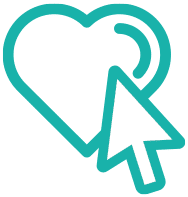
Online Egg Donor Application
The online application is the first step in our egg donor screening process. Although it is only a short form that can be completed in minutes, it is crucial and allows our coordinators to screen out many candidates who do not meet our egg donor qualifications. Women who would like to donate eggs with us provide their basic information like height, weight, ethnicity and any medical, psychological, or genetic conditions that they – or anyone in their family – may have.
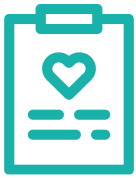
Egg Donor Profile and Medical Form
After we accept the initial online application, our egg donation coordinator talks with the potential egg donor to confirm the information provided, and to understand more about her situation and motivation to donate eggs. We explain our egg donation program, the commitment that egg donation takes and answer all the questions that may arise. Prospective egg donors will then fill out a detailed profile and medical questionnaire. This form focuses on information about the potential egg donor’s medical, psychological, and reproductive history as well as their personality, interests, and passions. The form also has questions regarding the medical history of the donor’s family. The egg donor profile form is more than just a series of questions, it is an opportunity for a prospective egg donor to showcase who they are as a person and what it means for them to donate eggs.

Egg Donor Screening Tests
Once we review and approve the completed paperwork, we move on to a series of egg donor screening tests and physical exams, as outlined below:
- Consultation with a fertility specialist
- Ultrasound
- Blood tests
- Urine test
- Psychological evaluation
- Genetic Counseling
We perform the core of the above tests at one of our Pinnacle Fertility clinics, which is great news for everyone involved. We get to meet all egg donors that we work with and build a trusting relationship. We really get to know each egg donor and who they are as a person. When featuring an egg donor in the online Donor Egg Bank – our online egg donor database, we display photos that accurately represent the egg donor’s appearance.
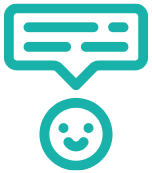
Consultation With Our Fertility Specialist
We invite each prospective egg donor to visit our clinic for a medical screening. The first step in the medical screening is meeting with our fertility specialist to discuss the process of donating eggs and the potential egg donor’s medical, psychological and reproductive history. The medical screening and consultation is our chance to learn more about each candidate and their motivation for becoming an egg donor. It is also an opportunity for the potential egg donor to talk with a member of our team and ask any questions that they may have about the egg donation process.
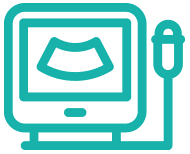
Ultrasound
Fertility is complex, and while the age and general health screening of an egg donor give doctors a good estimate of her fertility, only an ultrasound can determine the potential donor’s ovarian reserve (the approximate number of egg follicles they have in their ovaries). We perform a transvaginal ultrasound on any potential egg donor to ensure that she may qualify for our shared egg donation program. Since we are dealing with human bodies, there are no guarantees on how a woman will respond to egg donor medications. However, the follicle count gives our doctors a good indication of the number of eggs that the egg donor may produce.
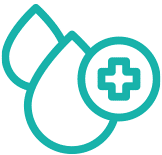
Blood Work
Like an ultrasound, a blood test is a way for our medical team to get precise details on the health of a potential egg donor. Using a blood test, we check for infectious diseases, like STIs including HIV, hepatitis, and syphilis. We also check their genes for markers of certain inherited diseases, like spinal muscular atrophy and cystic fibrosis. Different ethnic groups may also have a higher risk for certain hereditary conditions, so our team might order specific genetic tests based on the egg donor’s ethnic background. Some common examples are testing for sickle cell disease in African, African-American, or Mediterranean donors, thalassemia in Indian donors, and Tay-Sachs disease in Ashkenazi Jewish donors.

Urine Test
A urine test is a simple tool that our doctors use for drug testing and to check the egg donor’s body for additional STIs such as active gonorrhea and chlamydia. The current drug testing panel includes Amphetamines, Barbiturates, Benzodiazepine, Cocaine, Opiates, Phencyclidine, Methadone, Propoxyphene, and Nicotine.

Psychological Screening
All prospective egg donors undergo a thorough psychological screening with a psychologist. This screening ensures that each egg donor is mentally fit to be an egg donor and fully understands the egg donation process. While egg donation is safe and highly regulated, it can still be an emotionally taxing journey. We want to make sure that each potential egg donor is ready and that they have an excellent support system in place.
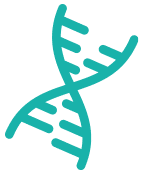
Genetic Counseling
We ask all our potential egg donors to undergo genetic counseling. The genetic counselor discusses the potential egg donor’s family history of disease, the ethnicity of their extended family members, and any other significant hereditary traits. This meeting is another opportunity for us to learn more about the egg donors we work with so we can share as much as possible with you.
Donor screening protocol is subject to change. The specific tests included in a donor’s screening may vary based on when they joined our program.
Beginning Your Journey to Parenthood
If you are ready to become a parent using donor eggs or have any questions you would like to ask, please contact our egg donation coordinator or call us at 424-385-0100.
You can learn more about using donor eggs for IVF in our FAQ and egg donation blog sections.

Search Our Bank for Exceptional, Fully-Screened Egg Donors
We work with exceptional, fully medically and psychologically screened egg donors to offer highest quality frozen donor eggs.

